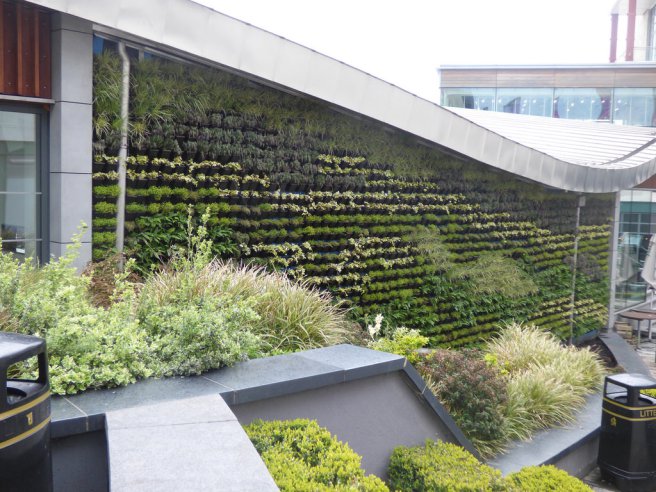
This article was first published on the Urban Living Birmingham blog.
Author: Gauri Kangai, Associate Innovation Executive, Geovation, Ordnance Survey
The Greener, Smarter Communities and Cities Geovation Challenge is focussed on developing solutions to communities’ real needs for future-proofing the communities and cities in which we live. Geovation sees ‘smart communities’ as placing people first, with technology, simply, as one ingredient.
Joined by our lead sponsors, Innovate UK and Northumbrian Water, the Geovation Challenge launched on the 4th of October and is open to idea entries until noon on the 29th of November 2017.
The Geovation Challenge is focussing on four problem areas that we are asking for your ideas on:
- How can we improve health and wellbeing?
- How can we support the local economy?
- How can we enable sustainable living?
- How can we enhance the natural environment?
Our enthusiasm to tackle these challenge areas is supported by many others who are committed to addressing similar challenges, including Greenspace Scotland, Glasgow City Council, Exeter City Futures, Green Halo, Bristol Natural History Consortium, Oxford County Council, and Urban Living Birmingham.
In this blog, we explore how the Urban Living Birmingham research project is striving for solutions to these problems, and how those with interests in the Birmingham City area can work with Urban Living Birmingham to build ideas suitable for the Geovation Challenge.
Urban Living Birmingham is a research initiative with the aim of stimulating innovation to develop and deliver integrated, city-wide solutions that “have the potential to transform the city into a prosperous, healthy and vibrant living place”. Similar to Geovation’s formula for successful innovation – whereby this depends on finding a real problem, building a viable solution to it, and executing it sustainably with a prospect to scale – a city-wide problem for Birmingham was identified:
“Appetite for innovation in the development and delivery of Birmingham’s services is high, but the degree of success and ability to integrate these innovations into mainstream strategies and policies varies greatly. Therein lies the paradox, and it has become evident that there is a missed opportunity for Birmingham, and British cities more generally, to co-innovate by effectively drawing upon end-users.”
Urban Living Birmingham is a consortium of universities led by the University of Birmingham and including Birmingham City University, Aston University and the University of Warwick. Those involved come from engineering, economics, psychology, planning and governance backgrounds, amongst other disciplines, and they are working alongside practitioners from the private and public sectors within Birmingham and its wider region.

The Geovation Challenge shares key problem themes that Urban Living Birmingham has researched, including equity of access to health services, simultaneously creating a smart and a green city, transport and barriers to city mobility, and transforming governance for multiple innovation processes – overall, focussing on a city that can be liveable and sustainable.
Sharing Geovation principles of open innovation and a people-first approach, the Urban Living Birmingham consortium is committed to encouraging the design and implementation of solutions to Birmingham’s challenges that go beyond the standard ‘user-centric’ approach. They think it is not enough to simply listen to the users of city services, but that the users themselves should be empowered to be the innovators of the solutions. Such an approach contributes to a more resilient Birmingham that, ultimately, provides better outcomes for people.
Under its Health and Wellbeing theme, the Geovation Challenge places a strong emphasis on empowering community action. We have deep-dived into this problem space, finding that ignoring basic community needs leads to lack of care and of quality of spaces and city facilities. Engagement with, and ownership of, spaces and facilities are needed by every community, with powerful, joined up data to ensure they are fit for purpose, receive the right investment and are sustainable. Research shows that community ownership of spaces, services and activities leads to 75% greater engagement by citizens, helping to leverage stronger cases for financial investment which local authorities are otherwise not wholly able to do (Locality, 2016). As well as the need to integrate lay-person knowledge with expert knowledge, participation from top-down influencers is needed. Urban Living Birmingham is familiar with these problem spaces in Birmingham and stresses the need for innovative solutions that cut across different policy silos.
With Urban Living Birmingham as experts in the problem space, Geovation can help support those who have the entrepreneurial spirit to turn their idea into a serious business venture that is sustainable and scalable to help create greener, smarter communities and cities.
If you’re a UK start-up, or individual willing to team up, and want to help solve pressing issues with improving health and wellbeing, supporting the local economy, enabling sustainable living and enhancing the natural environment within cities whilst using location information, then the Geovation Challenge is perfect for you. Winners of the Challenge will get an all-expenses-paid place at the 3-day Geovation Camp and Conference in London in February 2018. This Camp will equip you with the tools to build a sustainable business model and create a pitch to maximise your chance of success. There will be an opportunity to pitch for funding and a place on the Geovation Programme. The dragons-den style Conference will give you an exclusive audience of investors and influential stakeholders in greener, smarter cities who are also interested in supporting your idea. The Geovation Challenges is the perfect accelerator to get your GeoTech business off the ground!
The Geovation Challenge is open to UK-based organisations or residents, aged 18 or over. The Geovation Camp and Conference takes place in London, 14-16 February 2018.
To sign up to our blog mailing list, please click here.
